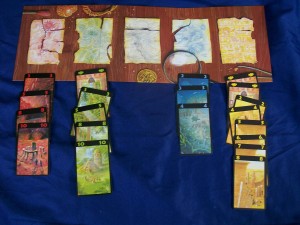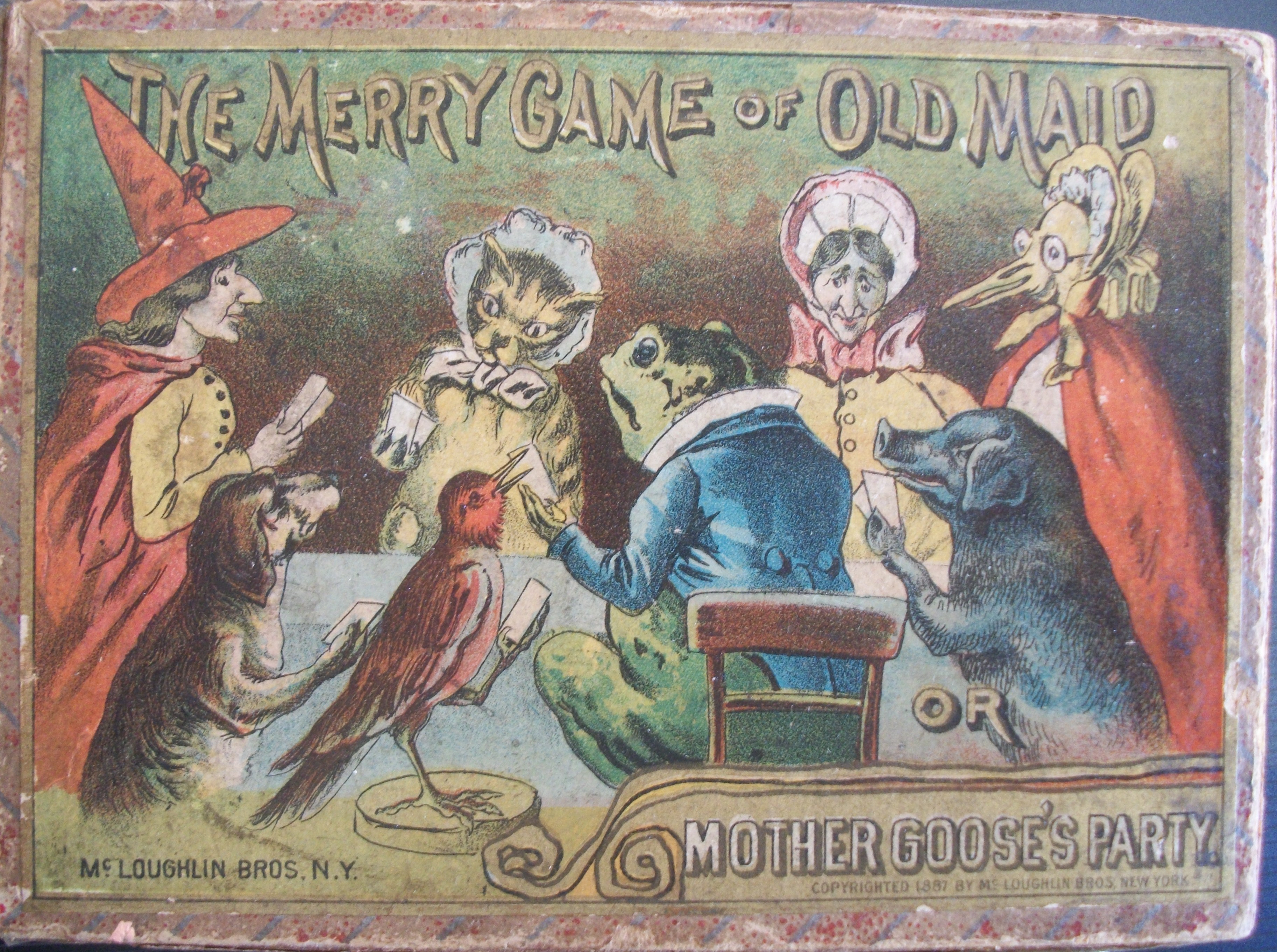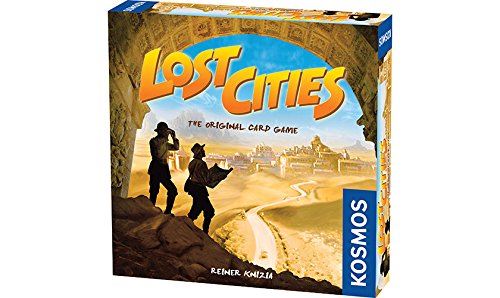Lost Cities is a card game which will have two players competing against each other to be named the most successful explorer.
Players must be careful in setting off on adventures in the card game of Lost Cities. Spreading oneself too thin may cause failure on all missions. Focusing on only one may leave players missing opportunities and in the dust of the other player. The balance for exploration by each player is the key for victory in this game.
Lost Cities was first published in 1999 and has since won many awards for its adventurous game play. Although a bit strategy is used for deciding when, or even if, one should start expeditions, the testing of one’s luck or not, is usually the biggest decision maker. This contest between luck and skill can encourage risky moves to be made by players and cause tense moments to the end.
The game contains 60 cards; 12 cards for each of the five different locations available for exploring: the mountains, the jungle, the desert, the volcanoes, or the deep sea. Explorers each begin with 8 cards being dealt to him with the remaining cards to be drawn upon throughout the game. Players start by choosing what to explore, hold off on, invest in, or forget about.
Three of each of the 12 cards are investment cards. They show an image of a handshake in the top corners. The other 9 cards are numbered from 2 to 10. The numbered cards are played in ascending order and represent the progress of a mission. Each number determines the scoring and success of a mission.
The investment cards can be chosen to be played only at the beginning of an adventure. If an expedition is successfully completed, the ones with greater investments are more profitable. However, if a player is unable to complete his invested missions, they are costly.
Non-invested expeditions all cost ‘20’, if embarked upon. Expeditions, uninitiated, cost a player nothing.
Each turn involves the playing of a card and the drawing of a card. Explorers play cards by placing the cards in front of them.
Playing a card involves the following choices:
- A player can play an investment card for the starting of an expedition
- A player can expand the investment of an expedition by playing another investment card on top of another
- A player may start an expedition without investment
- A player can continue an expedition
- A player can simply discard
The game ends as soon as the last card is drawn from the draw pile. The scoring is determined by the progresses made by each player.
Each numbered card is the value used in scoring. For example the first column shown (below) is an exploration embarked on by a player which earned him 6 points. The cards played are 3+5+8+10=26. The cost of any mission initiated is 20. So 26-20(the cost)=6. If one investment card was played first, as shown in the second column, he would have earned 12 points. Each investment allows the end total to multiplied positively or negatively by 2, 3, or 4, depending on 1,2 or 3 investments made.

The third column of cards shows a loss. An expedition was started but since the cost of deciding to start one is ‘20’, the player failed with a loss of 11 (2+3+4=9-20). If an investment card was played first, this would have cost him even more.(-11×2) A bonus is earned if a player’s expedition involved 8 or more cards, including investment cards. The forth column of cards shows this example, which earned the explorer a total of 56 points. (2+4+5+6+7+8=32. 32-20(cost of expedition) for 12 points. Then 12 x3 for the two investment cards=36 and then +20 bonus= 56)
This scoring may seem at first complicated; but once done, it is easily remembered and simple. The center column is empty. The cost for not embarking on an adventure is zero.
All expeditions are added together for a final score. The best of three rounds wins and will earn the player the title of best explorer.
Lost Cities is a unique and fun game to play. The rounds are quick and offer players the challenge to balance strategy with luck. The theme encourages players to more daring and adventurous explorations as the rounds go. It makes a wonderful addition to any game closet.



Pingback: Ten Best Fun and Games Gift Baskets for Christmas » All About Fun and Games
Pingback: Easter Fun and Games Gift Basket for a Family » All About Fun and Games
Pingback: Game Gift Basket Ideas for a Couple » All About Fun and Games